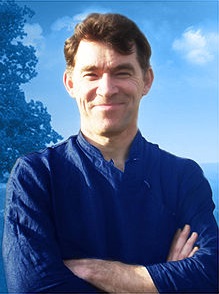Guest writer for Wake Up World
A sense of purpose means having a central, overarching goal (or goals) that provides a sense of motivation, direction, and meaning. When we’re ‘In purpose,’ life becomes less complicated and less stressful. We become mono-focussed, like an arrow flying toward its target, and our minds feel somehow taut and strong, with less space for negativity to seep in. We also become more resilient, and able to overcome obstacles that would normally defeat us. This is what the philosopher Friedrich Nietzsche meant when he wrote, “If you have a ‘Why’ to live, you can endure almost any ‘How.’”
[pro_ad_display_adzone id=”110028″]
In my work, I have highlighted several varieties of purpose, which have different effects. For example, for many human beings in the world, the main purpose of life is simply survival. Due to poverty or warfare, the main purpose of their lives is to satisfy their basic physical needs and those of their children.
Once our basic survival needs are satisfied, we may adopt other types of purpose. Some people might adopt what I call a “personal-accumulative” purpose of trying to accumulate possessions, achievements, success, or fame. Others may adopt an “altruistic-idealistic’ purpose of helping others and contributing to the world. Others—perhaps at the same time, since it’s possible to adopt more than one type of purpose—may adopt a “self-expansive” purpose of developing themselves through learning, creativity, or spirituality.
Purpose and Transformation
One of the most interesting findings from my research is that, following traumatic and tumultuous life events, some people experience a shift in purpose. I have spent many years researching what I call “transformation through turmoil,” triggered by events such as a diagnosis of cancer, bereavement, intense stress of depression, or addiction. (My recent book Extraordinary Awakenings summarizes my research.) In these circumstances, some people undergo a sudden transformation, with a new sense of well-being, appreciation, and connection.
In terms of purpose, the shift has two main effects. First, people feel a much stronger sense of purpose. Second, they shift away from a personal accumulative purpose, to an altruistic and or self-expansive purpose.
For example, in my book Extraordinary Awakenings I wrote about an ex-soldier called David, who underwent a transformation due to the horrors of military combat. After repeated exposure to the reality of death, and suffering his own serious injuries, he became aware of a strong impulse to help others and retrained as a counsellor and psychotherapist. As he told me, “The purpose of my life is to be here for others, to help them grow and see their own importance.”
Similarly, a woman called Gill Hicks almost died in a terrorist attack in London in 2006. At the time, she was a successful professional, working in the field of design and architecture. Once she regained consciousness and realized that she was going to survive, she felt like a different person, living a new life. (She actually called it “Life Two.”) After leaving the hospital, Gill left her job and started a new life as a peace activist and charity worker. She described how, after her transformation, “I no longer look for complications and they don’t come and find me. It’s amazing! All the rubbish of life has just slid away. I feel liberated. My path is being laid and being lit every day. I can see so clearly where I am meant to be going, it’s like an airport runway, where the bright lights along the strip guide the planes.”
Similarly, a man called Marcus underwent a transformation after a breakdown from the stress of trying to become successful and famous. He described his awakening as “a shift in focus from what can I get from life to what I can give to life.”
Awakening to Connection
In these cases, there is a shift from an accumulative to an altruistic purpose. There is a shift from a mode of accumulation to one of contribution. An encounter with death makes people aware of the preciousness and fragility of life. But rather than making them more concerned with their own desires and well-being, this awareness generates a powerful new altruistic sense of purpose.
Transformation through turmoil is often described in terms of a spiritual awakening. And one of the elements that we wake up to is our connection to others. We transcend selfishness, realizing that we’re not isolated entities, but part of a great shared network of being.
Taylor, S. (2016). A Model of Purpose: From Survival to Transpersonal Purpose. Transpersonal Psychology Review, 8(1), 12-25.
My book Extraordinary Awakenings is a study of this phenomenon.
Originally published at Psychology Today and reproduced with permission.
About the author:
Steve Taylor is a senior lecturer in Psychology at Leeds Beckett University, UK. His latest books in the US are The Calm Center and Back to Sanity: Healing the Madness of the Human Mind. He is also the author of The Fall, Waking From Sleep, and Out Of The Darkness. His books have been published in 19 languages. His research has appeared in The Journal of Transpersonal Psychology, The Journal of Consciousness Studies, The Transpersonal Psychology Review, The International Journal of Transpersonal Studies, as well as the popular media in the UK, including on BBC World TV, The Guardian, and The Independent.
Connect with Steve at StevenMTaylor.com.
[pro_ad_display_adzone id=”110027″]








